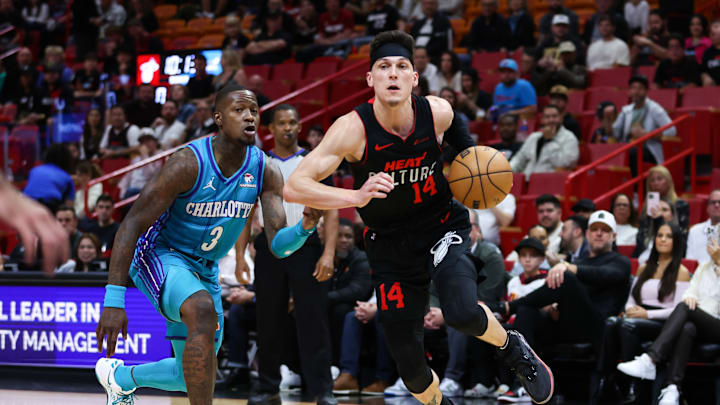Pro: Limit the amount of defenders opponents can target
While Herro and Rozier are willing defenders, both are still seen as free money when great scorers line up against them. Rozier may be seen in that light less than Herro. Early in his career, defense is how he got on the floor. He used to be an energizer bunny that picked up the best point guards 94 feet. Rozier did that in Miami, but it no longer has the same pop. And at 6-foot-1, great offensive weapons can rise over Rozier to get good shots even if he gets a great contest.
Every year of Herro's career, he's attempted to dispel the notion that he's a liability defensively. He's made tremendous strides with effort and wants to. But at the end of the day, physical limitations will limit how effective he can be defensively. This critique is more so addressing his 1-on-1 ability to get stops. Team defense is arguably more valuable than on-ball clamps, so Herro could still become elite on the team side. Good positioning, accurate anticipation, recovery, communication, and energy are all factors that make a great team defender. Herro isn't all the way there yet, but he ball-watched less last year, staying in the correct positions on defense.
Because Herro and Rozier aren't defensive stalwarts, limiting their time on the floor tighter should raise the defensive rating in theory. The fact is that taking out one of these offensive stars would limit the number of passable decision-makers Miami would have at their disposal.
